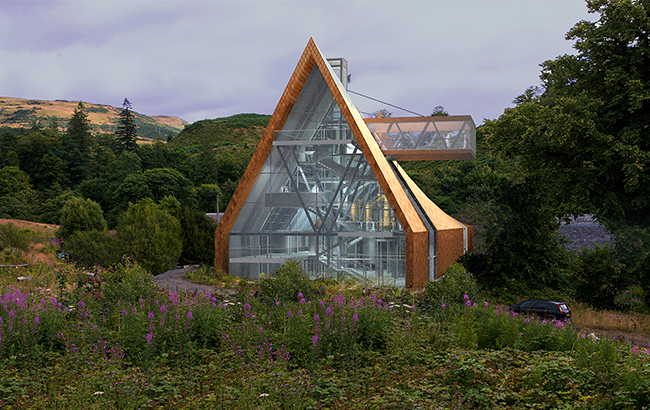Ardgowan to help small distillers hit green goals
Scottish producer Ardgowan has partnered with Heriot-Watt University to develop new carbon-reducing technologies to help small producers achieve their sustainability objectives.

Scottish distiller Ardgowan has teamed up with Heriot-Watt University’s International Centre for Brewing and Distilling (ICBD) and engineering provider Briggs of Burton on the new project.
The partnership will focus on areas including identifying and assessing applications of recovered CO2 as well as CO2 generation and quality. Volatiles such as ethanol are stripped with CO2 during fermentation, especially at the higher temperatures used in distilleries. This project will explore whether recovering these volatiles is possible.
Nearly 500,000 tonnes of carbon dioxide is produced by Scotland’s malt and grain distilleries and breweries every year, according to a 2018 report by Scottish Carbon Capture & Storage.
The project noted that whisky washbacks, used in distilleries as fermentation vessels, are generally fitted with CO2 extractors, however the CO2 is rarely collected.
The ‘high costs and multiple challenges’ associated with using existing technology make it difficult for smaller firms, the project noted.
Heriot-Watt will help discover and authenticate a wider range of carbon reduction technologies.
Ardgowan is planning to open its new sustainable distillery in 2024, which aims to be carbon neutral by 2030, and eventually net negative for CO2 production.
Every year, Ardgowan will produce 755,000 kg of CO2 from fermentation, with plans already in place to use Briggs of Burton’s technology including high temperature heat pumps to lower energy use.
‘Vital’ research
Dr Jessica Skelton, mission controller at Ardgowan Distillery Company, said: “The major industry players have the scale and resources to achieve their sustainability objectives.
“However, this research is so vital because it will provide practical guidance and technologies at a scale that’s within the reach of the many independent companies looking to capture and reuse biogenic CO2.
“It could also support companies in other markets. Whisky producers in Canada, USA and Japan often look to the Scotch whisky industry as leaders in production and operational change.
“Many manufacturing environmental assessments overlook biogenic CO2. As a result, these reports fail to consider the by-product’s potential.
“Our goal is to assess the production, capture, and potential uses of CO2 produced at our new one million litre per annum Scotch malt whisky distillery, finding new, sustainable uses that can be applied here and at other Scottish and international distilleries.”
The project will be based at the ICBD at Heriot-Watt University’s Edinburgh campus. The research is funded through the Food and Drink Net Zero Challenge fund.
Dr Dawn Maskell, head of the ICBD, added: “This project provides both leadership and practical solutions for distillers, brewers, and other beverage manufacturers as they strive to address their net zero challenges.
“Through this research, we’ll be creating suitable technologies for the wider industry, especially those that operate on a smaller scale. Current systems can be less economical and challenging to implement and we look forward to changing that.”
Related news
Mother of Pearl turns to paper bottles at Splash Paris
